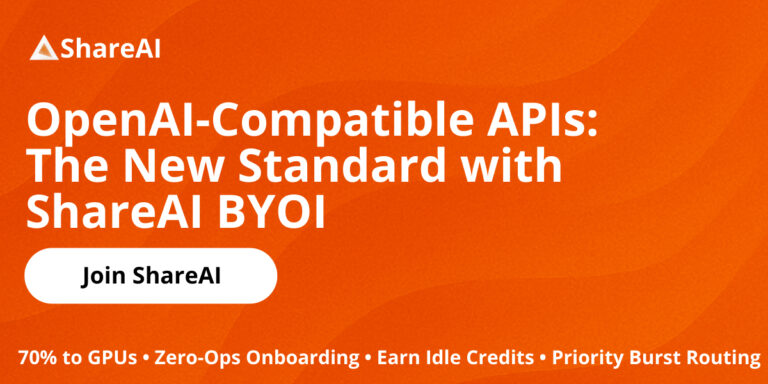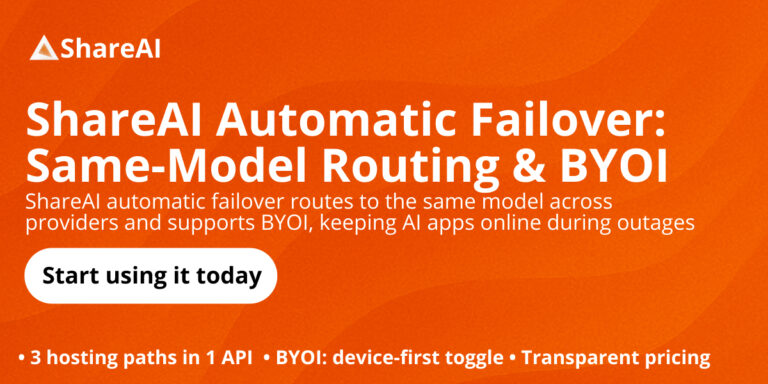Portkey Alternatives 2026: Portkey vs ShareAI
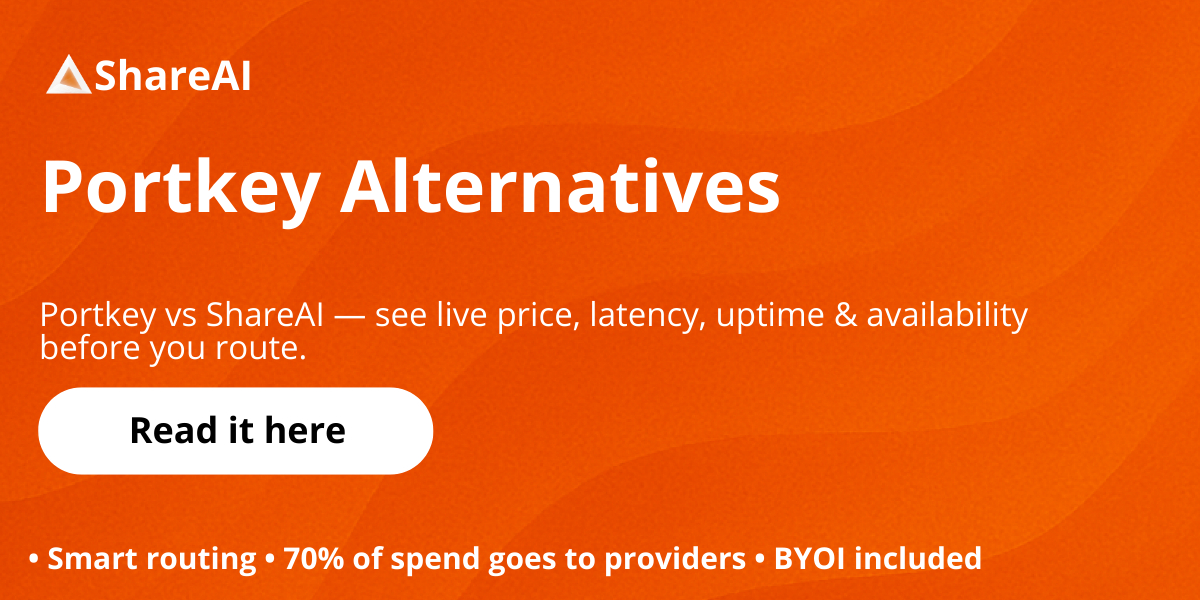
Updated February 2026
If you’re searching for a Portkey alternative, this guide compares options like a builder would—through routing, governance, observability, and total cost (not just headline $/1K tokens). We start by clarifying what Portkey is, then rank the best alternatives with criteria, migration tips, and a copy-paste quickstart for ShareAI.
TL;DR — If you want one API across many providers, transparent pre-route data (price, latency, uptime, availability, provider type), and instant failover, start with ShareAI. Keep a gateway if you need org-wide policies; add ShareAI for marketplace-guided routing.
What Portkey is (and isn’t)
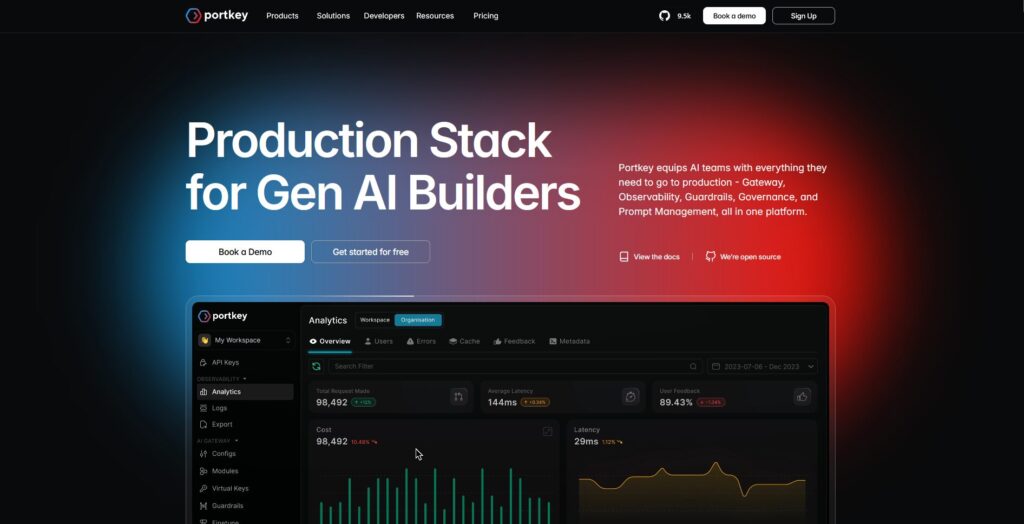
Portkey is an AI gateway focused on governance (policies/guardrails), observability (traces/logs), and developer tooling to operate LLM traffic at your edge—centralizing keys, policies, and protections. That’s powerful for compliance and reliability, but it’s not a transparent model marketplace and it doesn’t natively provide a people-powered supply side.
Aggregators vs Gateways vs Agent platforms
- LLM aggregators: One API over many models/providers, with pre-route transparency (price, latency, uptime, availability, provider type) and built-in smart routing/failover.
- AI gateways: Policy/governance at the edge (credentials, rate limits, guardrails) + observability; you bring providers. Portkey lives here.
- Agent/chatbot platforms: End-user UX, memory/tools, channels—less about raw routing, more about packaged assistants.
How we evaluated the best Portkey alternatives
- Model breadth & neutrality — proprietary + open; easy switching; no rewrites.
- Latency & resilience — routing policies, timeouts/retries, instant failover.
- Governance & security — key handling, scopes, redaction, regional routing.
- Observability — logs/traces, cost/latency dashboards, OTel-friendly signals.
- Pricing transparency & TCO — compare real costs before you route.
- Developer experience — docs, SDKs, quickstarts; time-to-first-token.
- Community & economics — does your spend help grow supply (incentives for providers/GPU owners)?
The 10 Best Portkey Alternatives (ranked)
#1 — ShareAI (People-Powered AI API)
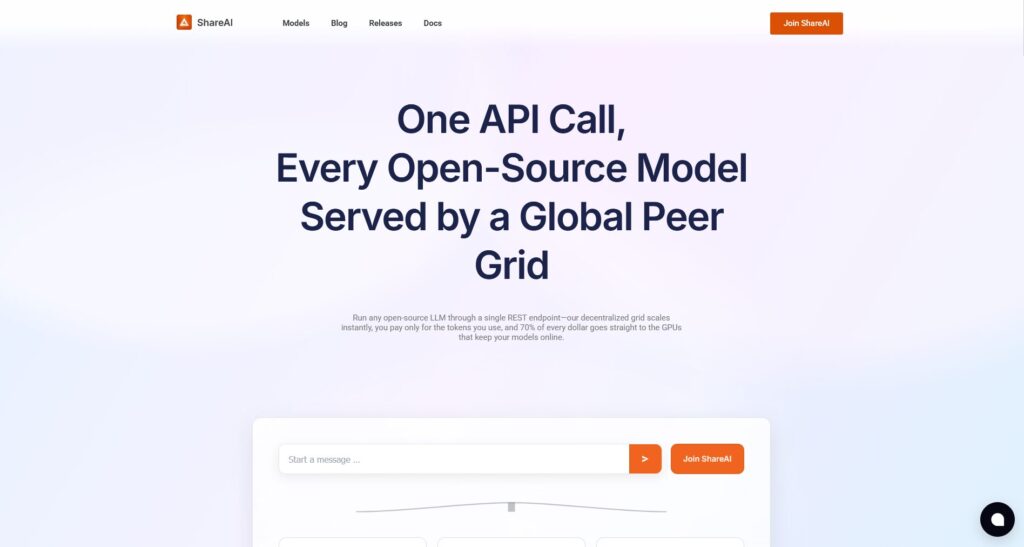
What it is. A multi-provider API with a transparent marketplace and smart routing. One integration gets you a broad catalog of models and providers; you can compare price, latency, uptime, availability, and provider type before you route—then fail over instantly if a provider blips.
Why it’s #1 here. If you’re evaluating Portkey but your core need is provider-agnostic aggregation with pre-route transparency and resilience, ShareAI is the most direct fit. Keep a gateway for org-wide policies, add ShareAI for marketplace-guided routing and no lock-in.
- One API → 150+ models across many providers; easy switching.
- Transparent marketplace: choose by price, latency, uptime, availability, provider type.
- Resilience by default: routing policies + instant failover.
- Fair economics: 70% of every dollar flows to providers (community or company).
Quick links — Browse Models · Open Playground · Create API Key · API Reference · User Guide · Releases
For providers: earn by keeping models online. Anyone can become a ShareAI provider—Community or Company. Onboard on Windows, Ubuntu, macOS, or Docker. Contribute idle-time bursts or run always-on. Pick an incentive: Rewards (money), Exchange (tokens/AI Prosumer), or Mission (donate a % to NGOs). As you scale, you can set your own inference prices and gain preferential exposure. Provider Guide.
#2 — Kong AI Gateway
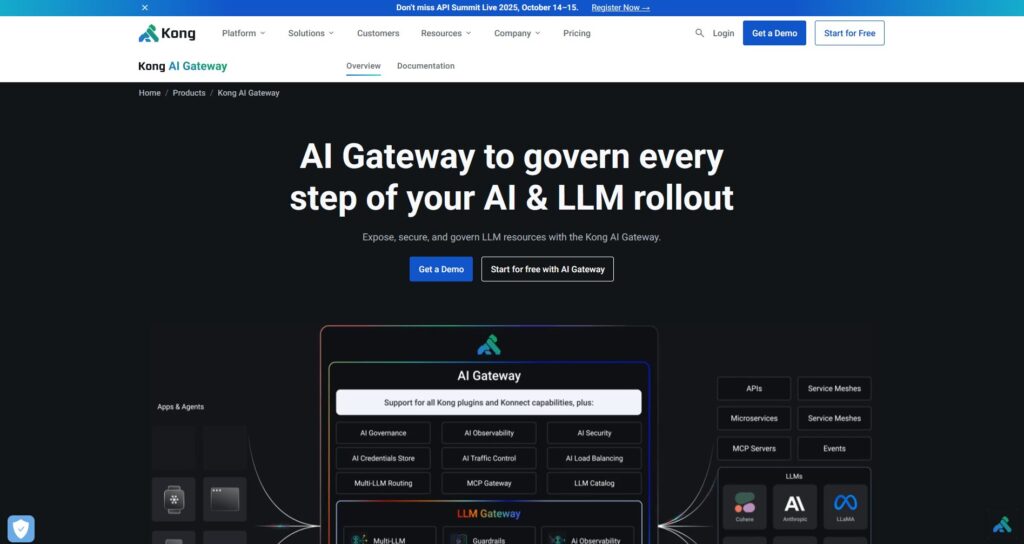
Enterprise AI/LLM gateway: policies, plugins, and analytics for AI traffic at the edge. A control plane rather than a marketplace; strong for governance, not for provider transparency.
#3 — Traefik AI Gateway
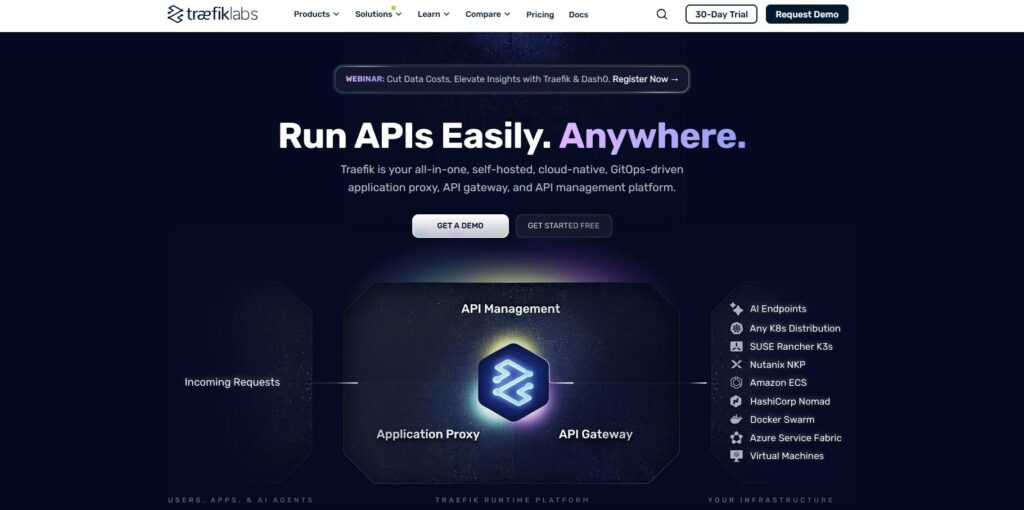
A thin AI layer atop an API gateway with centralized credentials/policies, specialized AI middlewares, and OTel-friendly observability. Great egress governance; bring your own providers.
#4 — OpenRouter
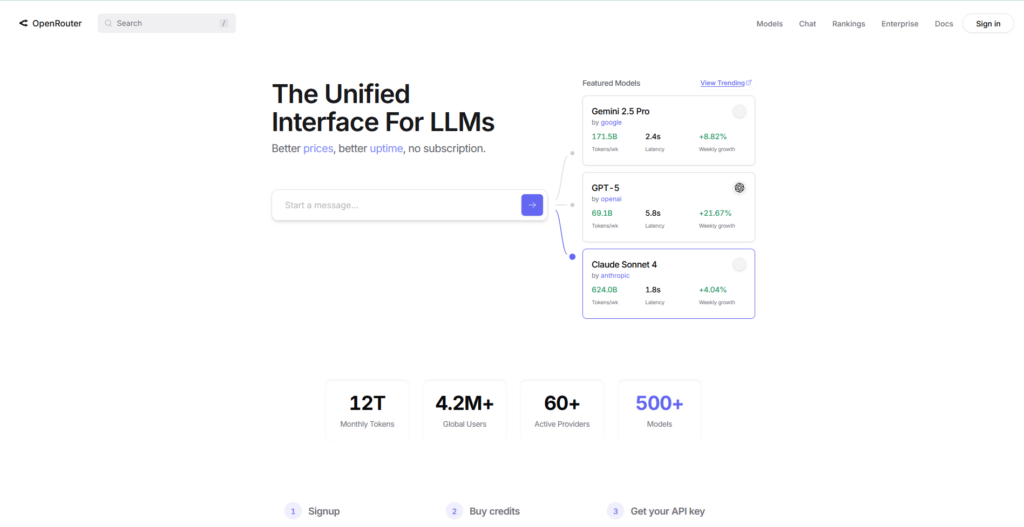
A unified API over many models; great for fast experimentation across a wide catalog. Less emphasis on governance; more about easy model switching.
#5 — Eden AI
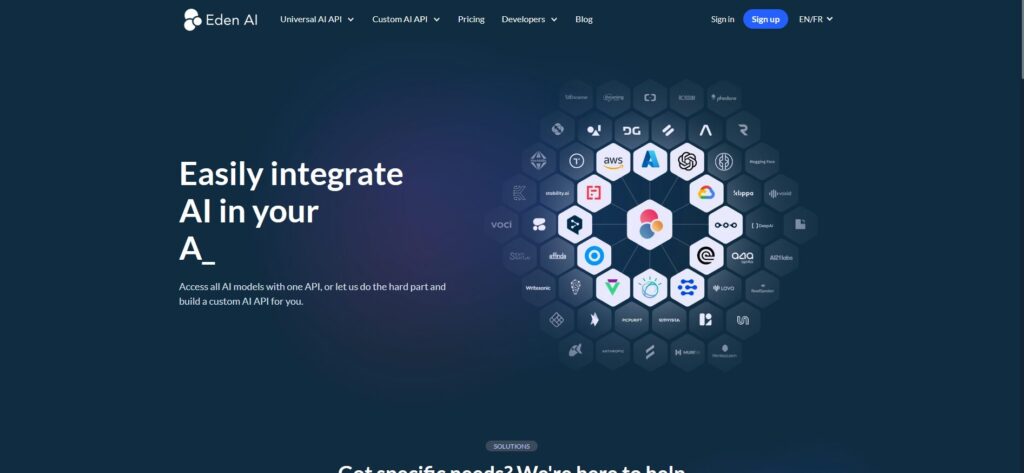
Aggregates not only LLMs but also image, translation, and TTS. Offers fallbacks/caching and batching; a fit when you need many AI service types in one place.
#6 — LiteLLM
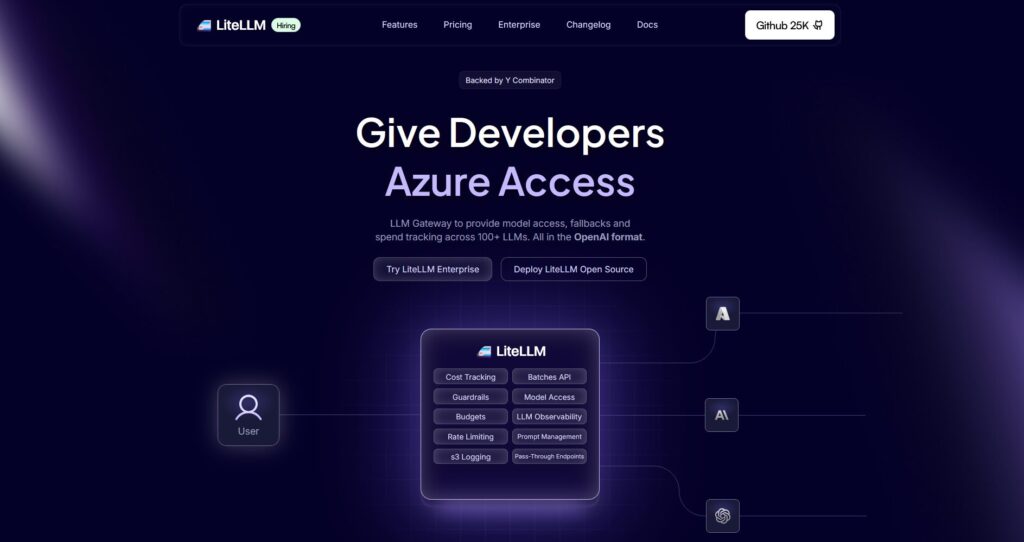
A lightweight Python SDK + self-hostable proxy speaking an OpenAI-compatible interface to many providers. DIY flexibility; ops is on you.
#7 — Unify
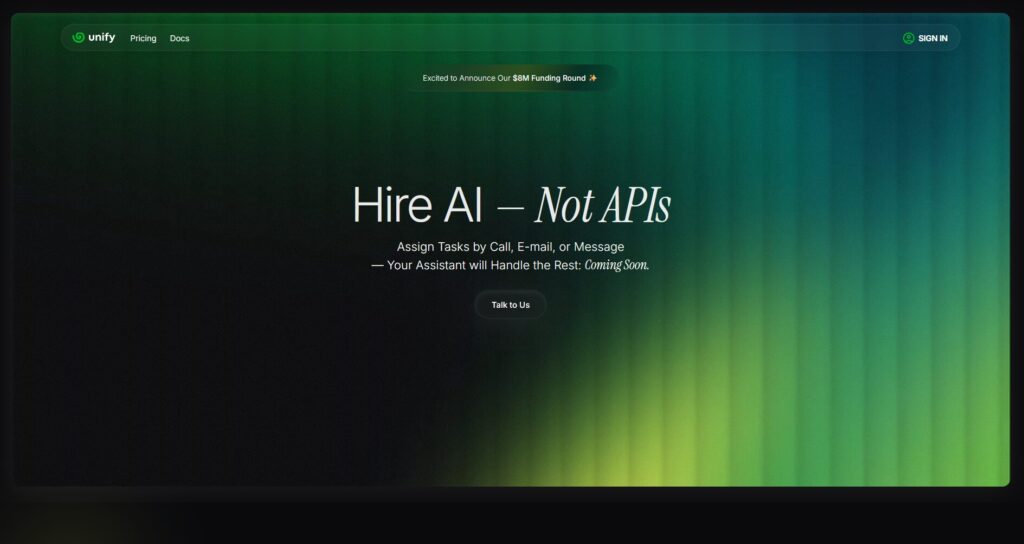
Quality-oriented routing and evaluation to pick better models per prompt. Strong for best-model selection, less about marketplace transparency.
#8 — Orq
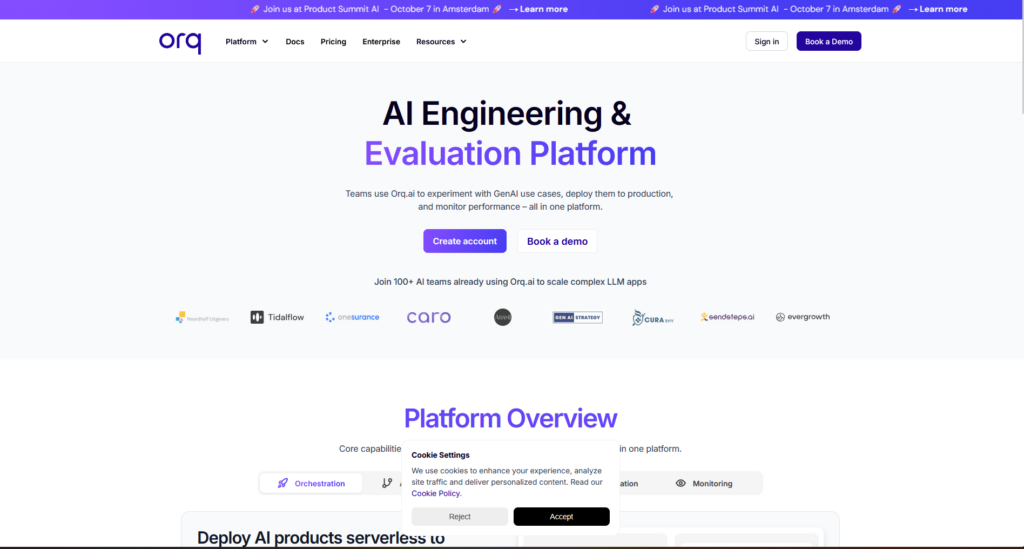
Orchestration/collaboration platform to move from experiments to production with low-code flows and team coordination.
#9 — Apigee (with LLMs behind it)
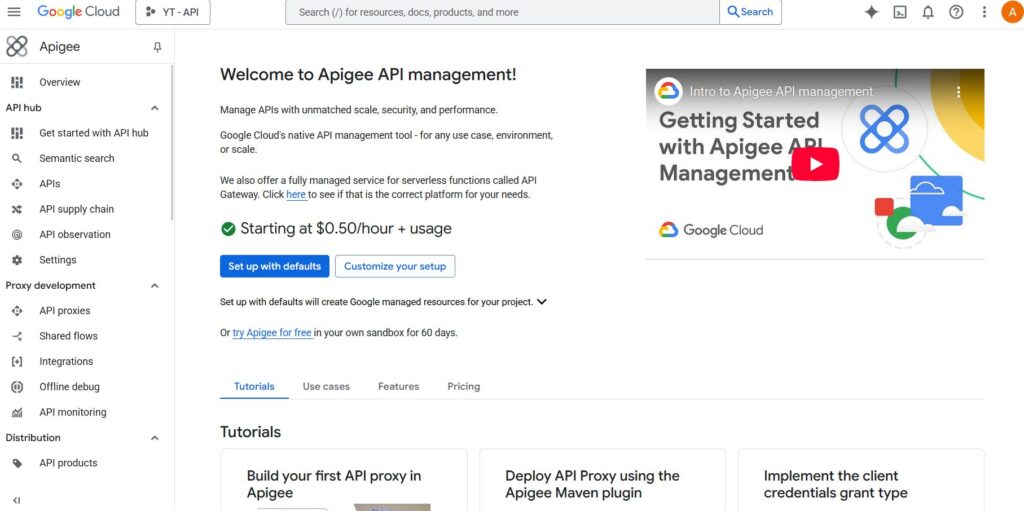
A mature API management/gateway you can place in front of LLM providers to apply policies, keys, and quotas. Broad, not AI-specific.
#10 — NGINX
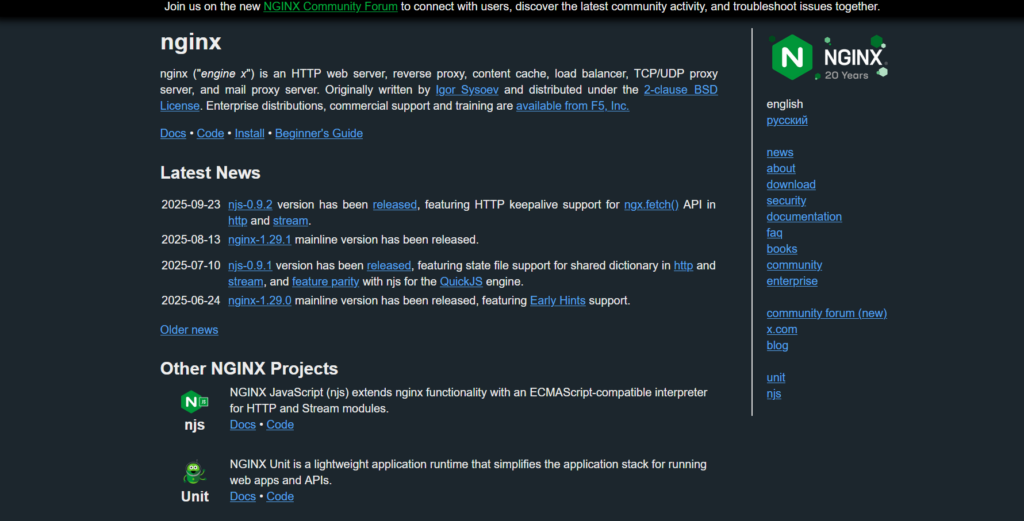
DIY approach: build custom routing, token enforcement, and caching for LLM backends if you want maximum control and minimal extras.
Honorable mentions: Cloudflare AI Gateway (edge policies, caching, analytics), OpenAI API (single-provider depth and maturity).
Portkey vs ShareAI (when to choose which)
If your #1 requirement is egress governance—centralized credentials, policy enforcement, and deep observability—Portkey fits well.
If your #1 requirement is provider-agnostic access with transparent pre-route data and instant failover, choose ShareAI. Many teams run both: a gateway for organization-wide policy + ShareAI for marketplace-guided, resilient routing.
Quick comparison
| Platform | Who it serves | Model breadth | Governance & security | Observability | Routing / failover | Marketplace transparency | Provider program |
|---|---|---|---|---|---|---|---|
| ShareAI | Product/platform teams needing one API + fair economics | 150+ models across many providers | API keys & per-route controls | Console usage + marketplace stats | Smart routing + instant failover | Yes (price, latency, uptime, availability, provider type) | Yes — open supply; 70% to providers |
| Portkey | Teams wanting egress governance | BYO providers | Centralized credentials/policies & guardrails | Deep traces/logs | Conditional routing via policies | Partial (infra tool, not a marketplace) | n/a |
| Kong AI Gateway | Enterprises needing gateway-level policy | BYO | Strong edge policies/plugins | Analytics | Retries/plugins | No (infra) | n/a |
| Traefik AI Gateway | Teams focused on AI egress control | BYO | AI middlewares & policies | OTel-friendly | Conditional middlewares | No (infra) | n/a |
| OpenRouter | Devs wanting one key | Wide catalog | Basic API controls | App-side | Fallbacks | Partial | n/a |
| Eden AI | Teams needing LLM + broader AI | Broad | Standard controls | Varies | Fallbacks/caching | Partial | n/a |
| LiteLLM | DIY/self-host proxy | Many providers | Config/key limits | Your infra | Retries/fallback | n/a | n/a |
| Unify | Quality-driven teams | Multi-model | Standard API security | Platform analytics | Best-model selection | n/a | n/a |
| Orq | Orchestration-first teams | Wide support | Platform controls | Platform analytics | Orchestration flows | n/a | n/a |
| Apigee / NGINX | Enterprises / DIY | BYO | Policies/custom | Add-ons / custom | Custom | n/a | n/a |
Pricing & TCO: compare real costs (not just unit prices)
Raw $/1K tokens hides the real picture. TCO moves with retries/fallbacks, latency (affects usage), provider variance, observability storage, and evaluation runs. A transparent marketplace helps you pick routes balancing cost and UX.
TCO ≈ Σ (Base_tokens × Unit_price × (1 + Retry_rate))
+ Observability_storage
+ Evaluation_tokens
+ Egress
- Prototype (~10k tokens/day): Optimize time-to-first-token with Playground + quickstarts.
- Mid-scale (~2M tokens/day): Marketplace-guided routing/failover can trim 10–20% while improving UX.
- Spiky workloads: Expect higher effective token costs from retries during failover—budget for it.
Migration guide: move to ShareAI from Portkey or others
From Portkey → Keep Portkey’s gateway-level policies where they shine; add ShareAI for marketplace routing + instant failover. Pattern: gateway auth/policy → ShareAI route per model → measure marketplace stats → tighten policies.
From OpenRouter → Map model names, verify prompt parity, then shadow 10% of traffic and ramp 25% → 50% → 100% as latency/error budgets hold. Marketplace data makes provider swaps straightforward.
From LiteLLM → Replace the self-hosted proxy on production routes you don’t want to operate; keep LiteLLM for dev if desired. Compare ops overhead vs. managed routing benefits.
From Unify / Orq / Kong / Traefik → Define feature-parity expectations (analytics, guardrails, orchestration, plugins). Many teams run hybrid: keep specialized features where they’re strongest; use ShareAI for transparent provider choice and failover.
Developer quickstart (OpenAI-compatible)
Create an API key in Console, then send your first request.
Create API Key · Open Playground · API Reference
cURL — Chat Completions
#!/usr/bin/env bash
# Prereqs:
# export SHAREAI_API_KEY="YOUR_KEY"
curl -X POST "https://api.shareai.now/v1/chat/completions" \
-H "Authorization: Bearer $SHAREAI_API_KEY" \
-H "Content-Type: application/json" \
-d '{
"model": "llama-3.1-70b",
"messages": [
{ "role": "user", "content": "Give me a short haiku about reliable routing." }
],
"temperature": 0.4,
"max_tokens": 128
}'
JavaScript (fetch) — Node 18+/Edge
// Prereqs:
// process.env.SHAREAI_API_KEY = "YOUR_KEY"
async function main() {
const res = await fetch("https://api.shareai.now/v1/chat/completions", {
method: "POST",
headers: {
"Authorization": `Bearer ${process.env.SHAREAI_API_KEY}`,
"Content-Type": "application/json"
},
body: JSON.stringify({
model: "llama-3.1-70b",
messages: [
{ role: "user", content: "Give me a short haiku about reliable routing." }
],
temperature: 0.4,
max_tokens: 128
})
});
if (!res.ok) {
console.error("Request failed:", res.status, await res.text());
return;
}
const data = await res.json();
console.log(JSON.stringify(data, null, 2));
}
main().catch(console.error);
Security, privacy & compliance checklist
- Key handling: rotation cadence; minimal scopes; environment separation.
- Data retention: where prompts/responses are stored; default redaction; retention windows.
- PII & sensitive content: masking; access controls; regional routing for data locality.
- Observability: prompt/response logging; ability to filter or pseudonymize; propagate trace IDs consistently.
- Incident response: escalation paths and provider SLAs.
FAQ — Portkey vs other competitors (and where ShareAI fits)
Portkey vs OpenRouter — quick multi-model access or gateway controls?
OpenRouter makes multi-model access quick. Portkey centralizes policy/observability. If you also want pre-route transparency and instant failover, ShareAI combines multi-provider access with a marketplace view and resilient routing. Browse Models.
Portkey vs Traefik AI Gateway — egress governance showdown?
Both are gateways (centralized credentials/policy; observability). Traefik offers a thin AI layer and OTel-friendly signals; Portkey emphasizes guardrails and developer ergonomics. For transparent provider choice + failover, add ShareAI alongside a gateway.
Portkey vs Kong AI Gateway — enterprise policy vs AI-specific guardrails?
Kong brings enterprise-grade policies/plugins; Portkey focuses on AI traffic. Many enterprises pair a gateway with ShareAI to get marketplace-guided routing and no lock-in.
Portkey vs Eden AI — broader AI services or egress control?
Eden aggregates LLM + vision/TTS/translation; Portkey centralizes AI egress. If you want transparent pricing/latency across many providers and instant failover, ShareAI is purpose-built.
Portkey vs LiteLLM — self-host proxy or managed governance?
LiteLLM is a DIY proxy; Portkey is managed governance/observability. If you’d rather not operate the proxy and also want marketplace-driven routing, go ShareAI.
Portkey vs Unify — best-model selection vs policy enforcement?
Unify focuses on evaluation-driven selection; Portkey on policy/observability. Add ShareAI when you need one API over many providers with live marketplace stats.
Portkey vs Orq — orchestration vs egress?
Orq helps orchestrate multi-step flows; Portkey governs egress traffic. Use ShareAI for transparent provider selection and resilient routing behind either approach.
Portkey vs Apigee — API management vs AI-specific egress?
Apigee is broad API management; Portkey is AI-focused egress governance. For provider-agnostic access with marketplace transparency, choose ShareAI.
Portkey vs NGINX
NGINX offers DIY filters/policies; Portkey offers a packaged layer with AI guardrails and observability. To avoid custom Lua and still gain transparent provider selection, layer in ShareAI.
Portkey vs OpenAI API — single-provider depth or gateway control?
OpenAI API gives depth and maturity within one provider. Portkey centralizes egress policy across your providers. If you want many providers, pre-route transparency, and failover, use ShareAI as your multi-provider API.
Portkey vs Cloudflare AI Gateway — edge network or AI-first ergonomics?
Cloudflare AI Gateway leans into edge-native policies, caching, and analytics; Portkey focuses on the AI developer surface with guardrails/observability. For marketplace transparency and instant failover across providers, add ShareAI.
Try ShareAI next
Open Playground · Create your API key · Browse Models · Read the Docs · See Releases · Sign in / Sign up
